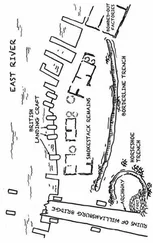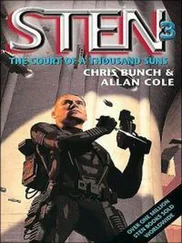Alex Scarrow - A thousand suns
Здесь есть возможность читать онлайн «Alex Scarrow - A thousand suns» весь текст электронной книги совершенно бесплатно (целиком полную версию без сокращений). В некоторых случаях можно слушать аудио, скачать через торрент в формате fb2 и присутствует краткое содержание. Жанр: Триллер, на английском языке. Описание произведения, (предисловие) а так же отзывы посетителей доступны на портале библиотеки ЛибКат.
- Название:A thousand suns
- Автор:
- Жанр:
- Год:неизвестен
- ISBN:нет данных
- Рейтинг книги:4 / 5. Голосов: 1
-
Избранное:Добавить в избранное
- Отзывы:
-
Ваша оценка:
- 80
- 1
- 2
- 3
- 4
- 5
A thousand suns: краткое содержание, описание и аннотация
Предлагаем к чтению аннотацию, описание, краткое содержание или предисловие (зависит от того, что написал сам автор книги «A thousand suns»). Если вы не нашли необходимую информацию о книге — напишите в комментариях, мы постараемся отыскать её.
A thousand suns — читать онлайн бесплатно полную книгу (весь текст) целиком
Ниже представлен текст книги, разбитый по страницам. Система сохранения места последней прочитанной страницы, позволяет с удобством читать онлайн бесплатно книгу «A thousand suns», без необходимости каждый раз заново искать на чём Вы остановились. Поставьте закладку, и сможете в любой момент перейти на страницу, на которой закончили чтение.
Интервал:
Закладка:
Dr Hauser had been an active card-carrying member of the party since first he’d heard the Great Man speak. In his opinion, that made him part of the ‘old guard’. He had even volunteered to join the SS at the outbreak of war, but his ‘special skills’ had proven an obstacle to joining. He had been refused on the grounds that his academic and research work could benefit the Reich far more than his physical contribution as a soldier could.
So Hauser, reluctantly and with some bitterness, had served his country living and working alone. He had worked in isolation on a chalkboard, in a ten foot by ten foot office in the Kaiser Wilhelm Institute for Physics, an annexe of the University of Berlin. He could talk to no one about his work and was given the task of checking and duplicating the notes and calculations of Professor Werner Heisenberg. Every day of the war he had spent a little time at a cafe nearby, reading about the spectacular victories of the Wehrmacht and the Waffen-SS, and cursing his role in the war as little more than a clerk double-checking the simple arithmetic of another mathematician. Hauser had grown to hate the slanted and florid writing of Heisenberg, the flamboyant tails on his Ys and Gs; the elaborate depiction of mathematic symbols suggested a man who was easy in the company of others, a man who could effortlessly climb the hierarchical ladder and speak with ease to those at the very top.
He resented the man.
Heisenberg was good, but not brilliant. His work was reliable and consistent, Hauser rarely found any mistakes in his calculations. But he was definitely not the genius he thought he was.
At the heart of Heisenberg’s work was the task of determining the minimum mass of U-235 required to produce the chain reaction of fission. The man had produced this lengthy calculation several dozen times, and each time the answer had pointed to unfeasible masses of this substance, tons. And yet the fool Heisenberg had persisted, securing additional funding for his work, attempting to construct a small reactor in Straussburg.
Hauser hadn’t been able to believe the utter stupidity of the man: the futility of the process was staring him in the face with every iteration of this same calculation.
Tons.
To produce a ton of U-235 one would need to extract a hundred tons, refined from 10,000 tons of enriched ore. Hauser wasn’t even sure that the whole planet contained that much of it. By March 1944 Hauser had convinced himself that the process of nuclear fission having a practical use either as a weapon or a power source was a stillborn science, and he was beginning to suspect that Heisenberg was merely extorting funds for his own private use.
It was during 1944, one wet and overcast afternoon in March, that he uncovered the pre-war research notes in the archives of the University of Leipzig of a Jew called Joseph Schenkelmann. He had been a student of Heisenberg’s while he had been a Professor of Theoretical Physics there in the 1920s. Reading the man’s notes and carefully following the path of his calculative trail, Hauser had been able to understand that something amazing was possible. The stupid and arrogant Heisenberg had made the same mistake over and over.
The arithmetic was correct, but he had made several erroneous assumptions in his work.
If he’d had the humility to double-check his own work he might have seen that it wasn’t tons of U-235 they needed, but only a few ounces. If the chain reaction could be accelerated enough at the beginning, that is. There was the trick, and this Jew Schenkelmann, this clever little Jew, had spotted that.
On that cold and wet afternoon everything had changed.
‘You should go in now, this door needs to be sealed,’ said the Feldwebel.
Hauser looked at the man in uniform; he had a soldier’s face, bereft of intelligence or emotion.
Little more than a shaved monkey dressed in a black uniform.
Hauser felt pity for him, and the millions of other shaved monkeys on this planet that passed themselves off as homo sapiens. Amongst these retarded homo erectus creatures lived only a few people intelligent enough to deserve being considered genuine human beings. Hauser had known the Fuhrer was one of these rare people since the very first sentence he had heard the man speak.
Hauser nodded and then stooped slightly as he entered Hitler’s bunker. As he straightened up beyond the bulkhead, the soldier grabbed a handle and pulled the heavy iron door closed with a solid clunk.
The woman he had seen earlier returned down the corridor and entered the children’s room. She closed the door and the chatter of young voices was instantly locked away.
‘Dr Karl Hauser?’
He jumped a little. A smartly dressed young lady stood to the side of the door in a corner with the benefit of very little light. Her hair tied up in a bun and a slim build, Hauser guessed she was in her early twenties.
‘My name is Traudl Jung. I am one of the Fuhrer’s private secretaries. Will you come this way, please?’
Traudl led him down the corridor towards the spiral staircase at the end. He passed by one of the paintings on the wall, a watercolour scene of a stream in a wood; in the corner was scribbled ‘Adolf Hitler June ’25’.
This is real, Karl Hauser… not a dream any more.
Traudl turned round to look back at him.
‘He is in the map room right now, Dr Hauser, in a meeting. But he knows you are here and will see you in his private study shortly. It’s this way.’
They reached the spiral stairs, and the secretary led, modestly holding the hem of her skirt to the side of her leg as she took the steps one at a time upwards. Hauser’s eyes took in what was still visible of her stockinged legs. His mind so often distracted with numbers, he had had little time in his life to consider other matters, those things that it seemed most men’s minds strayed from rarely. But watching the young woman’s slender legs bend and stretch with every step, he felt the faintest charge of arousal.
The spiral stairs took them up one floor, and Hauser found himself staring along an identical corridor with metal doors on either side.
‘It’s on the left here.’
The woman tapped on a door. ‘Ma’am?’ There was no answer. ‘Miss Braun?’ Again, there was no answer. She opened the door slowly and entered.
Hauser followed her inside. The room was small and with little content. In one corner stood a coat rack. On it hung a leather coat, a cane rested against the base of it. To his left, a door was ajar and Hauser could see a bed. The touches here and there suggested it was a woman’s bedroom. A German Shepherd was curled up asleep on the bed.
‘Blondi! Off!’
The Shepherd’s tail thumped guiltily against the bed-covers. She clambered off and curled up on a rug on the floor beside it.
Traudl wagged a finger at the bitch. ‘You know you’re not allowed on there. Ba-a-a-d girl.’ Blondi’s tail continued to thump guiltily against the floor and her ears tucked down.
Traudl noticed Hauser looking past her into the bedroom. She pulled the door shut with a disapproving frown and reached for the handle of another door ahead of them.
‘Here, this is his private study. He will be along shortly, Dr Hauser.’
‘Thank you,’ he replied automatically.
Frau Jung studied him for a few seconds before adding, ‘He never conducts meetings in his study. Never.’ With that she pulled the door open to reveal the small room.
Hauser found himself holding his breath as the door swung open to reveal the study. It was a volume of space privileged enough to witness the most private moments of the Fuhrer.
A desk, a standard lamp, a leather chair, a second chair and, behind the desk, a bookshelf laden with bound notebooks. It was as Hauser would have imagined such a room: simple, uncluttered, a reflection of the Fuhrer’s brilliant mind with no space for unnecessary embellishments or decoration.
Читать дальшеИнтервал:
Закладка:
Похожие книги на «A thousand suns»
Представляем Вашему вниманию похожие книги на «A thousand suns» списком для выбора. Мы отобрали схожую по названию и смыслу литературу в надежде предоставить читателям больше вариантов отыскать новые, интересные, ещё непрочитанные произведения.
Обсуждение, отзывы о книге «A thousand suns» и просто собственные мнения читателей. Оставьте ваши комментарии, напишите, что Вы думаете о произведении, его смысле или главных героях. Укажите что конкретно понравилось, а что нет, и почему Вы так считаете.











